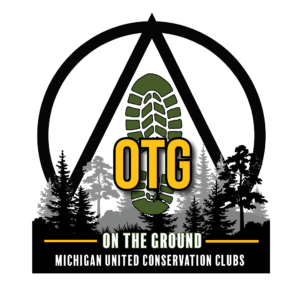On the Ground: Final Event of the Season in Kalkaska this Saturday
 This Saturday, Oct. 24 finds the On The Ground (OTG) program at the final event of the calendar year.
This Saturday, Oct. 24 finds the On The Ground (OTG) program at the final event of the calendar year.
Join MUCC’s OTG program as we plant native trees in Kalkaska near Johnson Lake this Saturday. Volunteers are needed to help plant, mulch and fence 90 mature soft mast-producing trees to enhance habitat for wildlife. These fruit trees will benefit a variety of wildlife that include ruffed grouse, wild turkey, white-tailed deer and an abundance of other game and non-game species.
Volunteers will meet at 1089 Wildwood Shores Drive, Kalkaska, MI 49646 at 9 a.m., and after registration and introductions are completed we will travel as a group to the nearby project site. Granola bars, sandwiches and water will be available to all volunteers while in the field planting trees, and brats and hamburgers will be served at the end of the event. All volunteers will also receive a free OTG t-shirt.
Although the official time slot for this event runs from 9 a.m. to 5 p.m., volunteers are welcome to leave at any point during the day and the event may conclude before the scheduled end time. Volunteers are asked to bring their own work gloves, if possible. MUCC will provide these materials if the volunteer is unable to bring their own. Please also bring a face covering that can be worn when social distancing of six feet or more is not possible. Additionally, four-wheel drive pick-up trucks will be beneficial to access the planting site.
If you’re interested in attending, be sure to register to ensure you’re counted for lunch. Learn more and register for this event HERE . Updates about the OTG program can be found on the OTG webpage , OTG Facebook page or by contacting MUCC Habitat Volunteer Coordinator Makhayla LaButte at mlabutte@mucc.org.
The post On the Ground: Final Event of the Season in Kalkaska this Saturday appeared first on Michigan United Conservation Clubs.
Recent Posts



